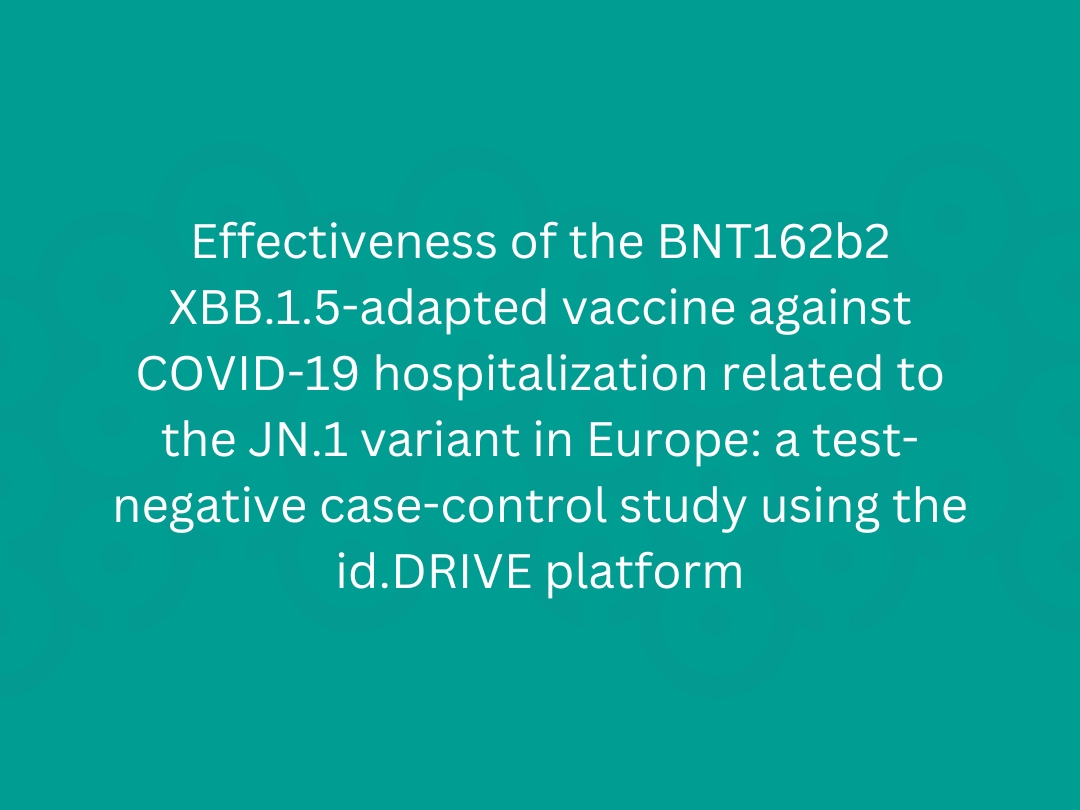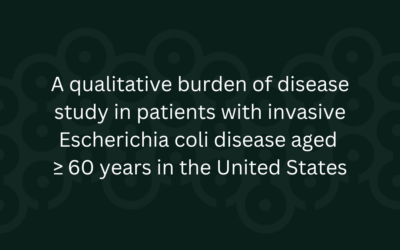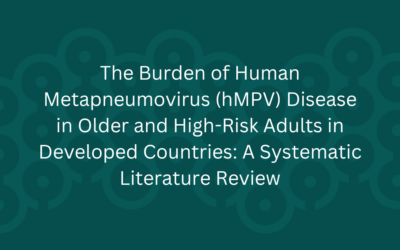Background
Prior studies have reported lower effectiveness of XBB.1.5-adapted vaccines against hospitalization related to the COVID-19 Omicron JN.1 variant than the XBB variant. This study evaluated the effectiveness and durability of the BNT162b2 XBB.1.5-adapted vaccine against JN.1-related hospitalization during the 2023–2024 season in Europe.
Interpretation
BNT162b2 XBB.1.5-adapted vaccine provided protection against JN.1-related hospitalization, regardless of prior vaccination history, with no evidence of waning through five months. These data support yearly vaccination against COVID-19 to prevent severe illness during the respiratory virus season.
Funding
Pfizer
Keywords
COVID-19, SARS-CoV-2, COVID-19 vaccination, Vaccine effectiveness, COVID-19 vaccine effectiveness study, BNT162b2, XBB adapted vaccine, JN.1
Authors
Jennifer L. Nguyena, Marianna Mitratza, Hannah R. Volkmana, Leonie de Munter, Thao Mai Phuong Tran, Catia Marques, Mustapha Mustapha, Srinivas Valluri, Jingyan Yang, Andrés Antón, Irma Casas, Eduardo Conde-Sousa, Laura Drikite, Beate Grüner, Giancarlo Icardi, Gerrit Luit ten Kate, Charlotte Martin, Ainara Mira-Iglesias, Alejandro Orrico-Sánchez, Susana Otero-Romero, Gernot Rohde, Luis Jodar, John M. McLaughlin, Kaatje Bollaerts
Read more
Findings
Among 308 test-positive cases and 1117 test-negative controls, BNT162b2 XBB.1.5-adapted vaccine effectiveness against hospitalization compared to no vaccination this season was 53.8% (95% CI 38.4–65.4) after a median of 63 days following vaccination. Protection was sustained through five months; VE was 52.2% (95% CI 41.3–61.1) 2 to <4 weeks after vaccination, 48.9% (95% CI 17.9–68.2) at 4 to <8 weeks, and ranged from 54.6% to 59.5% at 4-week intervals from 8 to <22 weeks.
Interpretation
BNT162b2 XBB.1.5-adapted vaccine provided protection against JN.1-related hospitalization, regardless of prior vaccination history, with no evidence of waning through five months. These data support yearly vaccination against COVID-19 to prevent severe illness during the respiratory virus season.
Funding
Pfizer
Keywords
COVID-19, SARS-CoV-2, COVID-19 vaccination, Vaccine effectiveness, COVID-19 vaccine effectiveness study, BNT162b2, XBB adapted vaccine, JN.1
Authors
Jennifer L. Nguyena, Marianna Mitratza, Hannah R. Volkmana, Leonie de Munter, Thao Mai Phuong Tran, Catia Marques, Mustapha Mustapha, Srinivas Valluri, Jingyan Yang, Andrés Antón, Irma Casas, Eduardo Conde-Sousa, Laura Drikite, Beate Grüner, Giancarlo Icardi, Gerrit Luit ten Kate, Charlotte Martin, Ainara Mira-Iglesias, Alejandro Orrico-Sánchez, Susana Otero-Romero, Gernot Rohde, Luis Jodar, John M. McLaughlin, Kaatje Bollaerts
Read more
Read this publication in eClinicalMedicine, The Lancet
[/et_pb_text][/et_pb_column][/et_pb_row][/et_pb_section]Methods
A test-negative case–control study was carried out in adults (≥18 y) hospitalized between 2 October 2023 and 2 April 2024 with severe acute respiratory infection (SARI) within the id.DRIVE partnership. id.DRIVE (formerly named COVIDRIVE) is a European public-private partnership to evaluate vaccine effectiveness (VE) against COVID-19 hospitalization. This study included nine sites across Belgium, Germany, Italy, and Spain. Cases had a laboratory-confirmed JN.1 infection or a positive SARS-CoV-2 test with symptom onset during JN.1 predominance; controls had a negative SARS-CoV-2 test and symptom onset during JN.1 predominance. The primary objective was to estimate BNT162b2 XBB.1.5-adapted vaccine effectiveness against COVID-19 hospitalization. One case was matched with up to four controls, according to symptom onset date and site. Multivariable analyses were adjusted for symptom onset date, age, sex, and number of chronic conditions.
Findings
Among 308 test-positive cases and 1117 test-negative controls, BNT162b2 XBB.1.5-adapted vaccine effectiveness against hospitalization compared to no vaccination this season was 53.8% (95% CI 38.4–65.4) after a median of 63 days following vaccination. Protection was sustained through five months; VE was 52.2% (95% CI 41.3–61.1) 2 to <4 weeks after vaccination, 48.9% (95% CI 17.9–68.2) at 4 to <8 weeks, and ranged from 54.6% to 59.5% at 4-week intervals from 8 to <22 weeks.
Interpretation
BNT162b2 XBB.1.5-adapted vaccine provided protection against JN.1-related hospitalization, regardless of prior vaccination history, with no evidence of waning through five months. These data support yearly vaccination against COVID-19 to prevent severe illness during the respiratory virus season.
Funding
Pfizer
Keywords
COVID-19, SARS-CoV-2, COVID-19 vaccination, Vaccine effectiveness, COVID-19 vaccine effectiveness study, BNT162b2, XBB adapted vaccine, JN.1
Authors
Jennifer L. Nguyena, Marianna Mitratza, Hannah R. Volkmana, Leonie de Munter, Thao Mai Phuong Tran, Catia Marques, Mustapha Mustapha, Srinivas Valluri, Jingyan Yang, Andrés Antón, Irma Casas, Eduardo Conde-Sousa, Laura Drikite, Beate Grüner, Giancarlo Icardi, Gerrit Luit ten Kate, Charlotte Martin, Ainara Mira-Iglesias, Alejandro Orrico-Sánchez, Susana Otero-Romero, Gernot Rohde, Luis Jodar, John M. McLaughlin, Kaatje Bollaerts






0 Comments